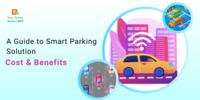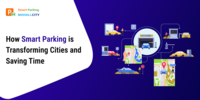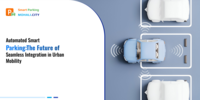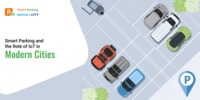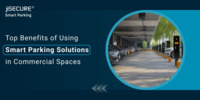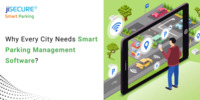- Jun 20, 2025
Share this post on:
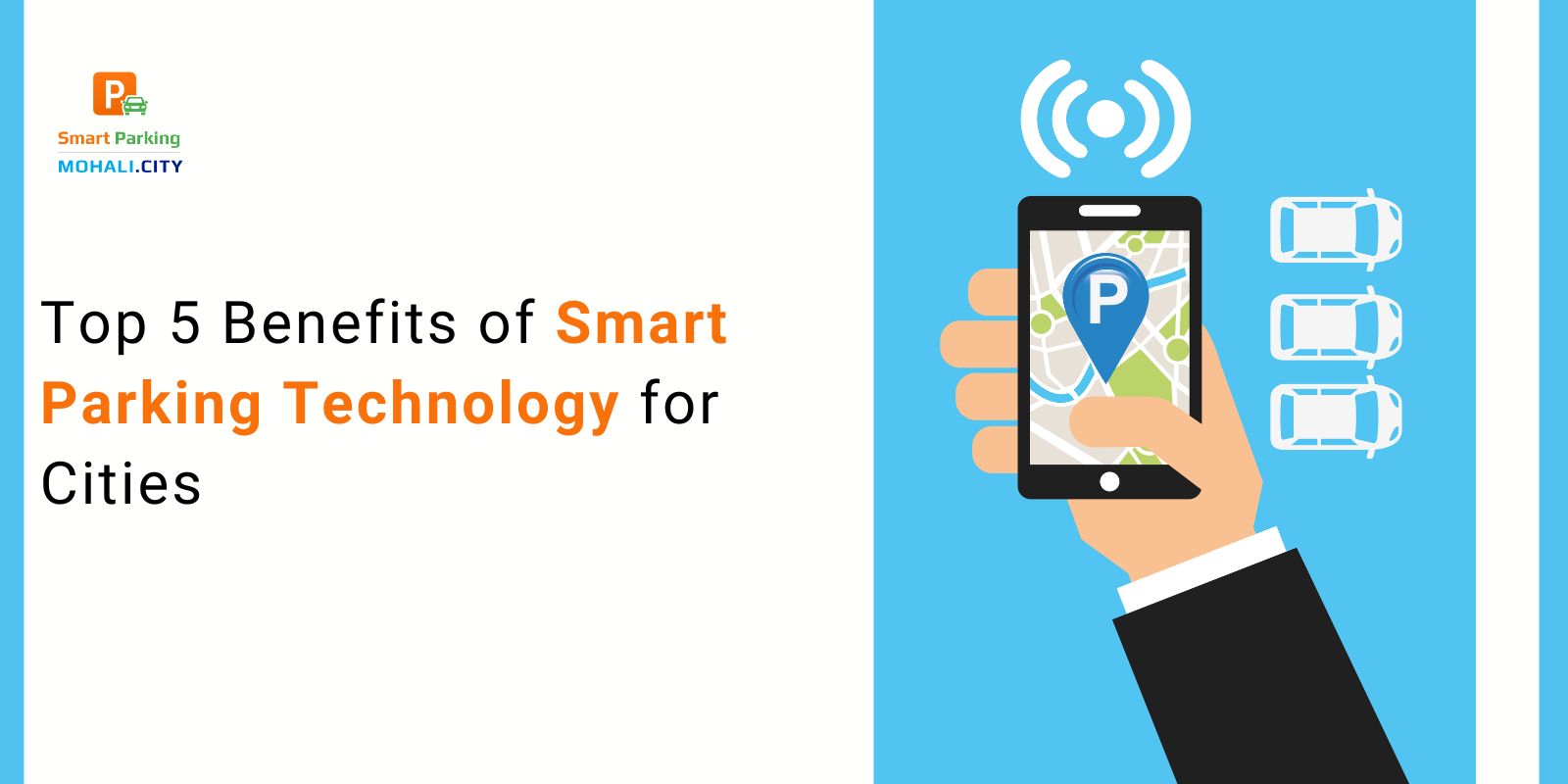
Parking. Just the word can elicit groans from drivers and frustration from city planners. Finding a space, circling blocks, dealing with congestion, and the endless search – it’s a daily struggle for many urban dwellers and a significant drain on city resources. But what if parking could be…smart?
Smart parking technology is rapidly emerging as a vital tool for cities aiming to improve quality of life, boost economic activity, and create a more sustainable urban environment. It's more than just an app that shows available spaces; it’s a holistic system leveraging sensors, data analytics, and connected devices to revolutionize the entire parking experience.
This blog post will explore the top 5 benefits of smart parking technology offers cities, moving beyond the simple convenience factor and diving into the deeper, transformative potential.
1. Reduced Traffic Congestion & Improved Traffic Flow
Perhaps the most immediate and impactful benefit of smart parking is its ability to drastically reduce traffic congestion. Think about it: how many drivers circle blocks, aggressively searching for a parking spot? This “cruising for parking” behavior contributes significantly to urban gridlock, wasting fuel, increasing emissions, and adding unnecessary stress to drivers.
Smart parking systems, typically utilizing in-ground sensors or cameras, provide real-time data on parking space availability. This information is relayed to drivers via mobile apps, variable message signs (VMS), or integrated into navigation systems.
- How it works: Sensors detect whether a space is occupied or vacant. This data is fed into a central system that processes the information and shares it with drivers.
- The impact: Drivers know exactly where available spaces are, eliminating the need to endlessly search. This reduces the "cruising for parking" behavior and minimizes traffic bottlenecks. Studies have shown that reducing circling time for parking can alleviate congestion by a significant percentage.
- Beyond the immediate: Smart parking often integrates with broader traffic management systems. Data on parking occupancy can be used to adjust traffic light timing, optimize bus routes, and even provide information to autonomous vehicles.
- Example: Cities like Barcelona and London have implemented smart parking systems with demonstrable reductions in congestion and improved traffic flow during peak hours.
2. Enhanced Driver & Resident Experience
While congestion reduction is a major city-wide benefit, smart parking fundamentally improves the experience for individual drivers and residents. No more frantic searches, no more circling blocks in frustration.
- Convenience & Time Savings: Knowing exactly where a space is available saves drivers valuable time and reduces stress.
- Improved Accessibility: Some systems offer features like reserving spaces in advance or identifying accessible parking spots for drivers with disabilities.
- Reduced Parking Fines: Real-time availability information helps drivers find legal parking spaces, minimizing the risk of fines and towing.
- Mobile Payment Options: Many smart parking systems integrate mobile payment options, eliminating the need for cash or parking meters.
- Increased Satisfaction: A smoother, more predictable parking experience contributes to higher levels of driver satisfaction and a more positive perception of the city.
- Reduced Stress: Let's be honest, finding parking is stressful. Smart parking significantly reduces that stress, contributing to a more pleasant urban experience.
3. Optimized Revenue Generation & Resource Management
Smart parking isn't just about convenience; it's also a smart financial strategy for cities. Effective implementation can lead to increased revenue and more efficient resource allocation.
- Dynamic Pricing: Smart parking systems often incorporate dynamic pricing models. Parking rates can fluctuate based on demand, encouraging drivers to utilize less congested areas or times. This maximizes revenue while promoting more equitable distribution of parking resources.
- Improved Enforcement: Real-time data on parking violations allows for more targeted and efficient enforcement, reducing revenue loss from unpaid fines.
- Reduced Operational Costs: Automating parking management processes reduces the need for manual inspections and administrative tasks, freeing up city staff for other critical tasks.
- Data-Driven Decision Making: The wealth of data generated by smart parking systems provides valuable insights into parking usage patterns, allowing city planners to make informed decisions about future parking infrastructure investments. They can identify areas with persistent shortages or oversupply.
- Optimized Space Utilization: By understanding parking usage patterns, cities can optimize the allocation of parking spaces, ensuring that spaces are being used efficiently.
4. Promoting Sustainability & Reducing Environmental Impact
The environmental benefits of smart parking extend beyond simply reducing fuel consumption from "cruising for parking." A holistic approach to smart parking contributes to broader sustainability goals.
- Reduced Emissions: The most direct impact is the reduction in vehicle emissions from drivers searching for parking. Less time spent idling and circling translates to lower greenhouse gas emissions and improved air quality.
- Encouraging Alternative Transportation: By making parking more efficient and potentially more expensive in high-demand areas, smart parking can subtly encourage drivers to consider alternative modes of transportation like public transit, cycling, or walking.
- Optimized Electric Vehicle Charging: Some smart parking systems integrate with EV charging stations, allowing drivers to locate available charging spots and even reserve them in advance. This promotes the adoption of electric vehicles and contributes to a cleaner transportation system.
- Reduced Noise Pollution: Less congestion means less honking and overall noise pollution, contributing to a more peaceful urban environment.
- Supporting Green Infrastructure: Data from smart parking systems can inform decisions about the placement of green spaces and other sustainable infrastructure projects.
5. Creating a Smarter, More Connected City
Smart parking is more than just a standalone system; it’s a vital component of a broader smart city ecosystem. It serves as a foundation for integrating different urban services and creating a more connected and responsive city.
- Data Sharing & Integration: Data from smart parking systems can be shared with other city departments, such as transportation, public safety, and urban planning, to inform decision-making and improve service delivery.
- IoT Integration: Smart parking systems are often integrated with other Internet of Things (IoT) devices, such as smart streetlights, smart waste bins, and environmental sensors, creating a more interconnected urban environment.
- Citizen Engagement: Mobile apps and online portals provide citizens with access to real-time parking information and allow them to provide feedback on parking services.
- Future-Proofing the City: Investing in smart parking technology prepares the city for the future, including the increasing adoption of autonomous vehicles and the continued growth of urban populations.
- Improved Quality of Life: By improving traffic flow, reducing stress, and enhancing citizen engagement, smart parking contributes to a higher overall quality of life for city residents.
Conclusion: The Future of Urban Mobility is Smart
Smart parking technology is no longer a futuristic concept; it’s a readily available solution for cities grappling with parking challenges. From reducing congestion and enhancing driver experience to optimizing revenue and promoting sustainability, the benefits are clear. As cities continue to evolve, embracing smart parking technology will be crucial for creating more livable, efficient, and sustainable urban environments for all. The future of urban mobility is undeniably smart, and smart parking is leading the way.
